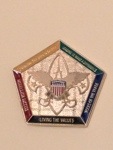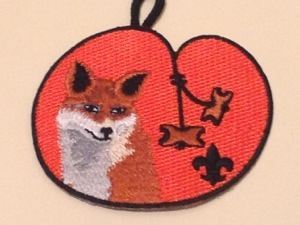A Rose By Any Other Name. . .Is Probably Going To Be Confusing

I got to do one of my favorite activities on Saturday; I got to attend a baseball game with two of my daughters. I watched the Utah Valley University Wolverines come up just short against the Houston Baptist Huskies, 4-3.
What made this day particularly enjoyable, was that my 16 year old daughter really wanted to know about the game. At the start she didn’t even understand the concept of an inning. By the end she was counting balls and strikes and asking why they left the pitcher in who’d just given up 2 runs. My 14 year old daughter, on the other hand was just there for the food. Both of them found the pictures of college athletes highlighted on the video screen VERY interesting.
I had to keep checking the scorecard to remember the name of the opposing team: Houston Baptist University Huskies. 
It made me think about the importance of names. The scoreboard showed “Wolverines vs Huskies.” We can simply mention names like Cubs, Yankees, Mariners or Dodgers and it brings to mind, for a baseball fan, images of team colors, uniforms, players, and memories of plays, games we attended. In 1957 the Dodgers moved from Brooklyn to Los Angeles. But, the name stayed the same and provided consistency. The records, the names, the history travelled with the team. It was still the same team.
In 2008 the Seattle Sonics became the Oklahoma City Thunder. In this case the records, the name and the history stayed in Seattle. Even though the players are the same, it’s now a different team.
It’s very possible that the Sacramento Kings will relocate to Seattle before next season. At that point they will be rebranded the Sonics, and adopt the history of the 1979 World Championship, the signature green and gold colors, the legacy of Gary Payton, Lenny Wilkins, Jack Sikma, Shawn Kemp and “Downtown” Freddy Brown. Again, it’s the name.
Identity
A team name provides an identity. Last summer I attended Woodbadge training. It’s basically like scout camp for adults. Attendees are randomly assigned to one of 10 patrols, Beaver, Bobwhite, Eagles, Foxes, Owl, Bears, Buffalo, and Antelope. There’s no real rhyme or reason to which patrol you are assigned to. I was assigned the Fox patrol. And yet, no matter what else I do in scouting I will forever be a Fox, and proud of it.
It’s basically like scout camp for adults. Attendees are randomly assigned to one of 10 patrols, Beaver, Bobwhite, Eagles, Foxes, Owl, Bears, Buffalo, and Antelope. There’s no real rhyme or reason to which patrol you are assigned to. I was assigned the Fox patrol. And yet, no matter what else I do in scouting I will forever be a Fox, and proud of it.

Organization
A team name also fills a practical purpose. It’s simply easier to refer to a group by a unique name. My friend, Howard Tayler recently talked about this in his award winning comic Schlock Mercenary.
 ((c) Tayler Corporation. Used with Permission)
((c) Tayler Corporation. Used with Permission)
I’ve previously talked about naming “The Biggest Team I Never Led,” the Redshirts. I came up with the name at the point I needed to create an email distribution list for them. Up until that point I simply went to an old email that included everyone’s address and reused it.
Pick the Right Name
Redshirts was not my first choice. It lacked any sense of history. It did imply a certain level of technical competence. After all, it was based on Star Trek’s Mr. Scott, the greatest miracle worker in cinematic history. But, it also conjured images of Redshirts dying in the first 15 minutes of the episode to show how serious the situation was.
My original choice was “Screw-ups.” This was a name that had history. The team completely understood it and took pride in their non-conformist reputation. Several of the team members encouraged me to use that as the team name.
Ultimately I didn’t use it. The team would have understood it, but anyone else that happened to see that name on an email wouldn’t understand. They would assume I was insulting my team.
I ran into the same problem when I managed the “Messaging and Collaboration” team. My team maintained the Microsoft Exchange and SharePoint installations. I named my team the “MAC Team.” It was a simple name. It was pronounceable. It was also a terrible name. We supported Window and Linux, but the one desktop OS that we did not support was MACs. So, having a team named “MAC” led to huge amounts of confusion. After a couple of weeks we switched it to the “CAM Team.” The SharePoint guys were happy to finally get top billing!
Teams inspire a sense of collectiveness that is difficult to achieve other ways. As a corporate trainer, one of the exercises that I use to personalize introductions is to ask people to give their name, their department and their high school mascot. Even 60 year old senior computer managers remember that they were a Knight, or a Blazer, or a Tornado.
This technique works great except when I teach in Europe. While Europe has high schools, the schools do not have mascots.
Names are an important way to build loyalty, and to uniquely brand your team. Just make sure you pick the right name. And if you don’t support Macintosh, don’t name your team “The MAC Team.”
